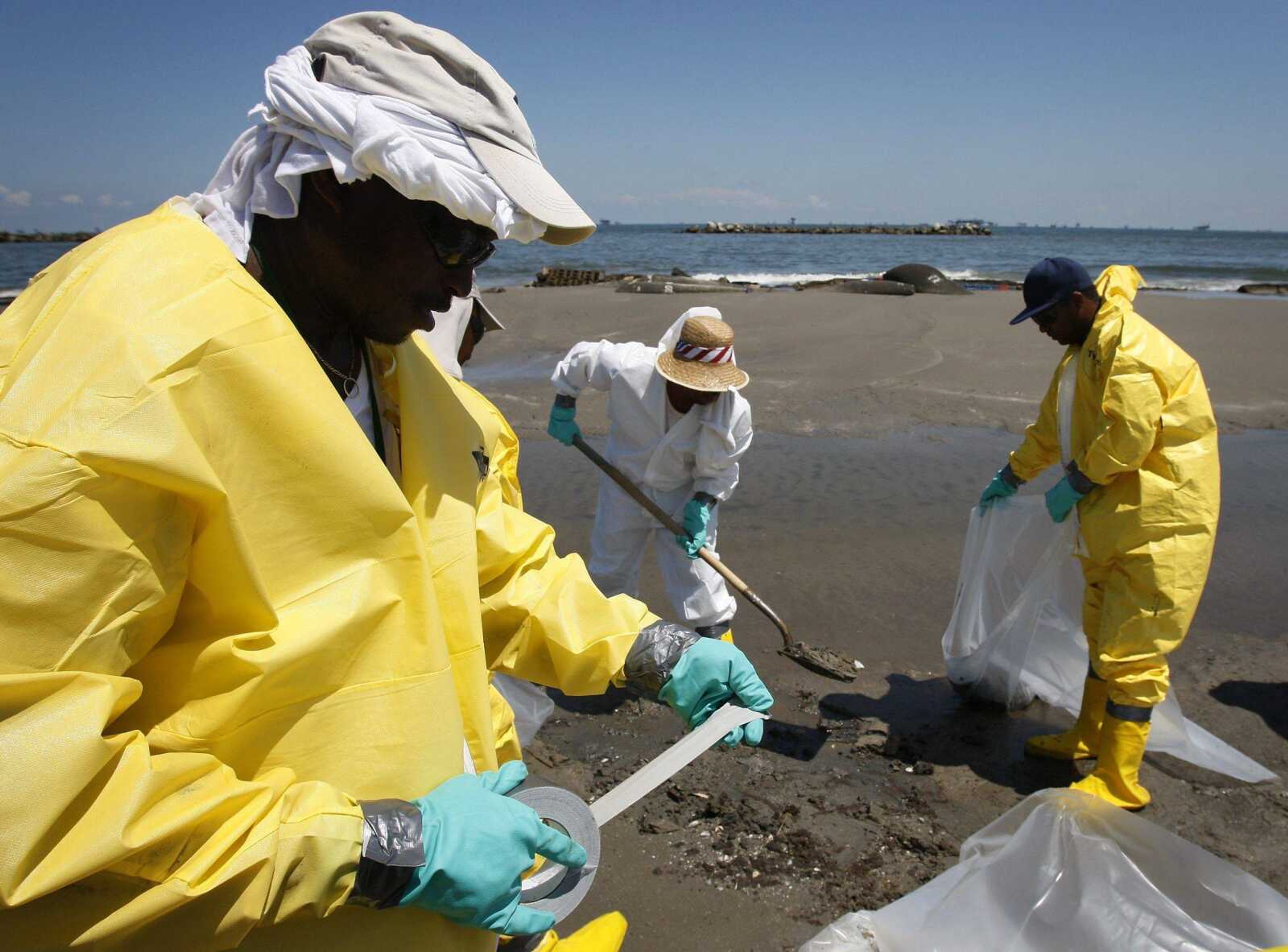BP will likely survive spill but with a smaller net worth
NEW YORK -- BP is probably sturdy enough to survive the worst oil spill in U.S. history. But investors are shaving billions of dollars off its value with every day that crude gushes into the Gulf of Mexico. On Tuesday alone, the first trading day since BP's latest attempt at a fix failed, and the day the government announced it had opened a criminal probe into the disaster, its stock took a hit of 15 percent...
NEW YORK -- BP is probably sturdy enough to survive the worst oil spill in U.S. history. But investors are shaving billions of dollars off its value with every day that crude gushes into the Gulf of Mexico.
On Tuesday alone, the first trading day since BP's latest attempt at a fix failed, and the day the government announced it had opened a criminal probe into the disaster, its stock took a hit of 15 percent.
The British oil giant is worth $75 billion less on the open market than it was when the Deepwater Horizon rig exploded six weeks ago. Other companies involved in the spill -- Transocean, Halliburton and Cameron -- have all lost at least 30 percent in value.
And as oil seeps unchecked into the Gulf, nearby states, businesses, environmental regulators, injured workers and cleanup crews are eyeing damages that could total billions more.
"This will be the mother of all liability claims," said Fred Kuffler, a Philadelphia maritime lawyer who has handled oil-spill lawsuits.
After six weeks of failures to block the well or divert the oil, BP was using robotic machines to carve into the twisted appendages of the crippled well. The latest attempt involved using tools resembling an oversized deli slicer and garden shears to break away the broken riser pipe so engineers can then position a cap over the well's opening.
Even if it succeeds, it will temporarily increase the flow of an already massive leak by 20 percent at least 100,000 gallons more a day. And it is far from certain that BP will be able to cap a well that one expert compared to an out-of-control fire hydrant.
"It is an engineer's nightmare," said Ed Overton, a Louisiana State University professor of environmental sciences. "They're trying to fit a 21-inch cap over a 20-inch pipe a mile away. That's just horrendously hard to do. It's not like you and I standing on the ground pushing, they're using little robots to do this."
BP says it has spent $990 million so far on fighting and cleaning the spill. Its liabilities and potential fines are growing by the day, and it could be August before the company gets control of the situation by completing two relief wells.
The company has already agreed to pick up the government's cleanup tab and any "legitimate" damage claims. BP said Tuesday it has paid out about $40 million to cover about half of the 30,000 claims it has received.
At least 130 lawsuits have been filed seeking damages for business lost from the spill. Most are from seafood processing plants, charter boat captains, hotels, restaurants and others who make their living from the sea or from coastal tourism.
Based on federal law, BP and partners Anadarko Petroleum and Mitsui & Co. also face a minimum fine of $1,000 per barrel of oil spilled, said Eric Schaeffer, who led the Environmental Protection Agency's enforcement office from 1997 to 2002. Schaeffer is now the director of the Environmental Integrity Project.
The government estimates 20 million to 43 million gallons of crude have gushed into the Gulf over the past six weeks. If the spill were contained today, the fines would add up to between $480 million and $1 billion.
Already, the Gulf disaster has eclipsed the 1989 Exxon Valdez spill, which, after two decades of lawsuits, cost Exxon Mobil $4.5 billion. That's roughly $654 per gallon in today's dollars, according to Blake Fernandez, an analyst with Howard Weil, an energy investment firm with headquarters in New Orleans.
BP is self-insured, and analysts say it has enough money to pay for the growing calamity without putting the company at risk of bankruptcy.
Most of its legal costs will be spread out over years, if not decades, as suits wind their way through the courts. The company can also borrow up to $15 billion from various credit lines to pay for cleanup and other costs without overextending debt beyond company targets.
BP also will benefit from what has become an extremely lucrative oil production business. As long as oil prices stay above $60 a barrel, BP's other oil rigs will make enough money to maintain company operations and pay shareholders the expected $10 billion in dividends, Fernandez said.
"They could use the rest to pay down debt or whatever," he said.
Connect with the Southeast Missourian Newsroom:
For corrections to this story or other insights for the editor, click here. To submit a letter to the editor, click here. To learn about the Southeast Missourian’s AI Policy, click here.








